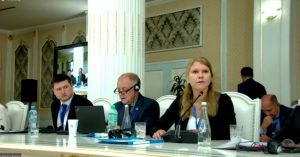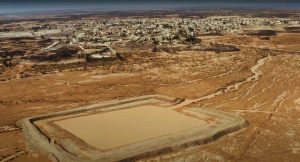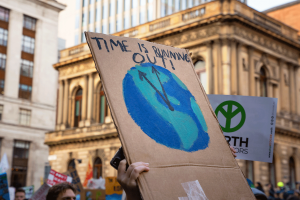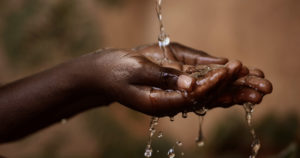- SIWI – Leading expert in water governance
- /
- Latest
- /
- Developing a deeper dialogue
Developing a deeper dialogue
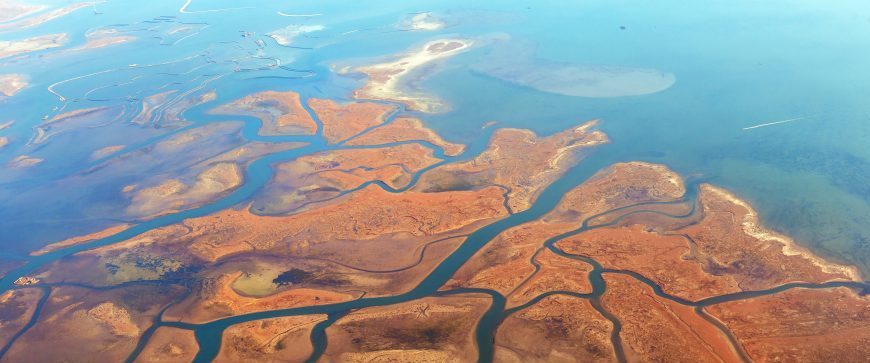
There is a need for a deeper dialogue and a different way of listening to resolve conflicts. Instead of only listening to the words others say, one should try to listen to which feelings and needs they are expressing, says Dr Aaron Wolf.
How often do you stop, focus and really listen in a daily conversation? Take your time to give your full attention to someone else and not only hear the words the person is saying, but also the values and needs the person is expressing?
My guess is not as often as you should.
Dr Aaron Wolf from Oregon State University and IHE Delft Institute for Water Education visited SIWI to talk about what we can learn from faith traditions with regards to transforming conflict in water dialogue.
Dr Wolf stated that there is a need for a deeper dialogue and a different way of listening that can be practiced and integrated into conflict resolution processes – including in the water sector. Instead of only listening to the words others say, participants and facilitators alike should try to listen to which feelings and needs they are expressing to better identify and understand their shared values.
This approach diverges from how negotiations and dialogue in many Western countries are commonly framed: stark board room types environments, predominately political elites who define themselves as rational and presume to consider objective criteria in their decision making. The focus of the negotiations lies on defining and constituting boundaries and compatible interests, rather than identifying and allowing shared values to drive the discussion. As a result, many negotiations get stuck or are unable to resolve underlying tensions.
Instead, to achieve long-term peaceful solutions to water conflicts, Dr Wolf advocates an approach to dialogue that builds not only on positions and interests but values and harmony. Considering the physical, emotional, perceptual and spiritual needs of the individuals in the room is an important step for better understanding each other.
This holistic view can transform the way we hold dialogues and reach break-throughs in negotiations, Dr Wolf recommends based on his experience as mediator and facilitator in water management.
Religion and spirituality play an important role here. Most faith-based communities are founded upon these four basic human needs.
In many Western countries religion is no longer a part of everyday life, but globally that is rather an exception: “To not take religion and spirituality into account is like closing one eye when you see the world”.
Because of the importance of spirituality to many people’s lives, faith communities must be represented in water dialogues. “If we dismiss the spiritual aspect, we dismiss what is crucial for local communities”.
According to Dr Wolf, faith communities can convey messages that scientists cannot. Often, they go beyond rationality and maximising benefits, and can better address the actual values and needs of people.
In his presentation, Dr Wolf got many of us to reflect on how we generally meet and connect with people. In dialogues about access to water, it is not a question about what is yours and what is mine, but about what is essential for life itself. Taking that extra time and resources in trying to understand each other’s needs might led to positive outcomes not only at professional level, but also personal. So, are we brave enough to not only listen with our ears, but also with our hearts?
Are you interested in learning more about the Water and Faith Dialogue convened by SIWI? Please contact Elizabeth Yaari.
Watch the video from the seminar at our Facebook page here.


